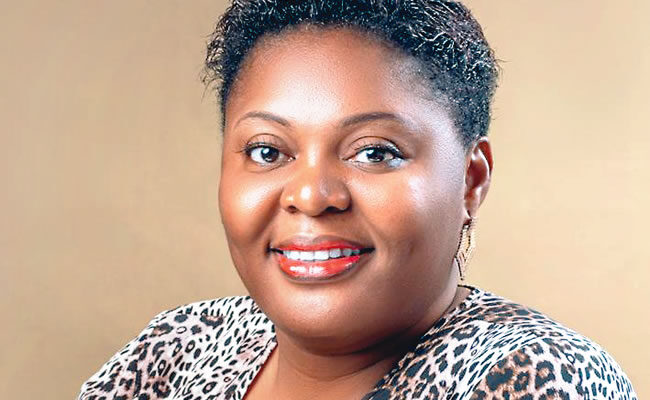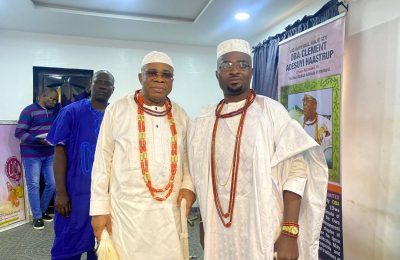

In this interview by SADE OGUNTOLA, Dr Temitope Farombi, a consultant neurologist warns that poor memory, particularly from age 60, should be assessed to rule out dementia, a brain problem that increases one’s risk for depression and poor quality of life in the aged.

What is dementia and how common is it in Nigeria?
Dementia is a brain disease that often affects older adults, leading to problems remembering things, thinking and carrying out the day to day activities. In its late stage, it makes them dependent on others to help them to live.
Is every memory problem due to dementia; will every older person have dementia?
No, that is a wrong assumption. Some older people may have memory problems, but that does not necessarily mean they have dementia. These are two different things. Unfortunately, a lot of people ascribe loss of memory in older persons to ageing.
Dementia is a disease; it is not a normal part of ageing. When we say dementia, it affects their daily activities. Imagine a person not able to recognise familiar faces or even remember to eat or to dress properly and so on. Invariably, they become dependent on people to help them to live. That is when we talk about dementia. Some older people could have memory problems, like cognitive impairment, but it does not necessarily mean they have dementia.
Presently, dementia is not as common in Nigeria as in the developed world. But this is already changing with the number of older persons in Nigeria rising.
Memory problem is the commonest early sign of dementia; it is an indication of having early signs of dementia. Other symptoms include difficulty to remember familiar faces like that of the family and friends; being confused about time and place; difficulty with numbers and/or handling money in shops and difficulty finding the right words, what can be termed word finding difficulties. Imagine seeing a cup and not remembering what it is called. All these are a sign of something sinister in the brain.
As the disease progresses, they develop behavioural abnormalities like personality changes, inappropriate behaviour, becoming aggressive, being irritable, forgetting to dress properly and exhibiting behaviours that are defiant from that of the community like walking nude from the bathroom. They can start lying on their spouses or partners to say maybe they want to hurt them.
Are people aware about dementia in Nigeria and what are the common impediments to its diagnosis?
One of the major things that has affected the diagnosis of dementia in Nigeria is lack of knowledge and lack of awareness about the disease. Often, people ascribe it to normal ageing, religious and superstitious beliefs and voodoo. As a result, people don’t understand that this is a disease. So, people older than 60 years with memory problems should seek medical help. Unfortunately there are few doctors that can help treat the condition. At the primary Healthcare level, such cases should be referred to specialists. Of course its treatment requires team work. Basically, neurologists and psychiatrists treat persons living with dementia. Those with abnormal behaviour or being irritable aside from having memory loss will need to see a psychiatrist to help them to manage their behavioural abnormality. Also, a neurologist, who is a brain specialist, can be consulted.
Is there any link between stroke and dementia?
Yes, there’s a very strong link between stroke and dementia. Stoke is an affectation of the blood supply to the brain, causing the brain cells to die. This can also affect the brain cells that control memory. There’s an entity called vascular dementia that results in loss of memory and difficulty carrying out activities of daily living following the occurrence of stroke. It is said that stroke increases the risk of having dementia by 30%.
Some schools of thought say that stroke and dementia are becoming an increasing global health concern. How true is this?
Yes, it is very true and scary. Stroke is already attaining epidemic levels in Africa, Nigeria inclusive. It is the commonest medical emergency we are seeing in younger adults these days. We are seeing a lot of the risk factors that can lead to stroke like hypertension, diabetes, high cholesterol and stress in younger adults and a lot of them are coming down with stroke. As time goes on, these young people can start developing dementia even much earlier.
Can sleeping pills be a reason for some of these cases of dementia in these elderly people, many have issues with sleeping at night?
Yes, people who take sleeping pills are at risk of developing cognitive impairment that can lead to dementia. They have a 40% higher risk of dementia than those who don’t take sleeping pills. Aside from its other side effects, it can actually cause memory problems. Also, we don’t advise that people with dementia take sleeping pills; it can worsen the dementia condition.
Many older adults don’t sleep at night because they are not active during the day time. Frequent napping will probably cause them to lose sleep at night and because humans are programmed to sleep when everything is dark, they will not be able to sleep well at night. That is common in the elderly but if their sleep pattern is adjusted by ensuring that they are engaged in activities during the daytime, they will sleep well at night.
What type of activities can they engage in considering that some are frail, have difficulty seeing or walking and so on?
There are so many activities that the older adults can do at day time, especially those who are retired. They can actively engage in mental activities and exercises that are not strenuous. They should go out and have a purpose. For instance, they can engage in games like ayo olopon, taking care of younger ones around them, petty trading, volunteering to do community, religious or even school activities. In the olden days, older adults still went to the farm and the women to the market. Being inactive is not good for an elderly person. They should be active rather than sitting or sleeping all day and then having difficulty sleeping at night.
In many cultures, people say elderly people after retirement should only eat and sleep, without doing any chores or work. That practice is not good. Older adults need to be active, the less they use their brains and muscles, the weaker they become.
For instance, at Brain Health Initiative, an NGO I am involved with, we are into what is called empower to enrich. We engage older adults in petty trading. The essence is to simulate their cognition and to help improve their mood. Staying at home or staying alone is a risk factor for depression. Incidence of depression is higher in the older ones. Also, depression is a risk factor for dementia. This is all about getting them to interact with a lot of people and exercise more by moving within their space.
Can older adults volunteer or work in Nigeria given that they are often stigmatised and called names?
That is unfortunate, our cultural beliefs and religious inclinations have not really helped. It has actually further driven a wedge in the relationship between older adults and younger ones. It was not like that years back. Of course, the economic situation in the country is not helping. The older adults always want to talk to us, but we’re not talking to them. We are busy looking for money here and there. The family is important and when we have older adults and children living together, it helps to bond and ensure activities for them.
What will be your advice for family and caregivers of elderly people who are always throwing tantrums, difficult to please and irritable, given your advice that they shouldn’t be neglected?
If you notice an older adult changing behaviour, throwing tantrums, being irritable and they have been excessively difficult, it is important for them to be reviewed by a medical personnel. Older adults sometimes tend to experience what is called delirium; it makes them have abnormal behaviour. Aside from that, things like dehydration, lack of sleep and urinary tract infection can make an elderly person who otherwise has a stable behaviour suddenly changes and becomes irritable, not responsive and excessively difficult. It can also be an early sign of a brain disease like dementia. These are the things that we need to understand first. So, don’t always assume that an older person is always difficult; there will always be a reason for their behaviour.
READ ALSO FROM NIGERIAN TRIBUNE








